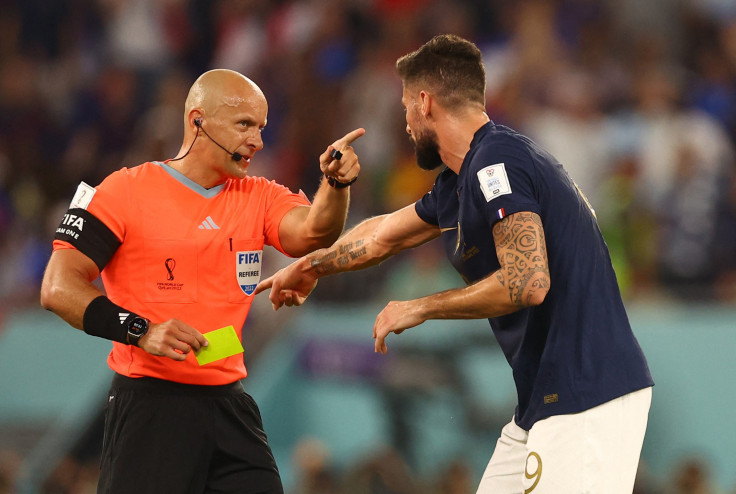
Professional football could be in line for a significant change as the idea of a sin bin rule at the highest level of the game has been discussed.
Talks took place at the annual business meeting held by football's law-making body, the International Football Association Board (IFAB), on Tuesday, where it was recommended that there should be trials of sin bins in professional football. The sin bin rule that is being put forward is for players to be removed from a game for 10 minutes.
Players would be placed in the sin bin if they were found to have shown dissent towards the referee or if they committed a tactical foul. Tactical fouls occur in football when a defensive player brings down an opposition player who has the ball by pulling them back and makes no attempt to retrieve the ball.
The recommended trialling also includes a proposal whereby only the captain is permitted to speak with the referee during a major situation in a match. Ultimately, these newly proposed rules are to better the behaviour of those competing in football and allow referees to be treated with greater respect.
The treatment of referees has become an increasingly relevant matter lately, especially in the Premier League, as managers are being warned of stronger punishments and fines should they direct negative comments at referees in post-match interviews.
The IFAB general meeting that is scheduled for next March will potentially see the approval of the new sin bin rule.
Sin bins would be a brand-new concept to the highest level of football, but it has been implemented in other sports such as rugby union since 2001 and involves any player who receives a yellow card sitting out of the game for 10 minutes. Also, in rugby only the team captain is allowed to converse with the referee, avoiding any harassment of the referee in the process.
Despite not being used in professional football, sin bins have been implemented in lower levels of the sport. Sin bins were first trialled at lower leagues from 2017-2019 and made a positive impact as there was a 38 per cent decrease in dissent aimed at referees during the 2018/2019 campaign.
Eventually, the 2019/2020 season saw all levels of grassroots football apply the sin bin rule to its matches. Players that were disciplined would receive a yellow card and be pointed in the direction of the touchline where they would sit out for 10 minutes.
Chief Executive of the Football Association (FA) and IFAB board member, Mark Bullingham, spoke on sin bins potentially helping reduce dissent in the professional game. He said: "When we were looking at sin bins, the areas we were looking at were dissent, where it's worked very, very well in the grassroots game in England."
Bullingham also touched on why tactical fouls were also suggested as warranting a sin bin punishment, saying there is "frustration for fans watching games when they see a promising counter-attack that's ruined by that. The question of whether a yellow card is sufficient has led to us looking at whether that should be involved in the protocol as well".
However, many are against the idea of a sin bin in professional football such as former Arsenal player and Sky Sports pundit, Paul Merson, who has labelled it as "an absolute waste of time."
Merson explained how sin bins would make the game worse, stating: "The team with the man down have got no choice but to sit behind the ball. All they'd be doing then for that 10 minutes is taking their time over taking a throw-in, they'll take a goal kick, they'll buy a foul, and it'll just grind out the worst 10 minutes you could imagine."
Also discussed at the IFAB meeting was the future use of semi-automated technology for checking offside decisions, with further development on the technology set to go ahead. Semi-automated checks for offside decisions were in place at the 2022 FIFA World Cup and it has been used in the UEFA Champions League too.
Time-wasting tactics were also addressed at the meeting and it was agreed upon that any new changes to VAR should not be at the cost of further delays in a match.
VAR has come under immense scrutiny in the Premier League this season with many frustrated with how the technology has been applied, how long it has taken to make decisions and the lack of communication in situations where there is an ongoing VAR check.







